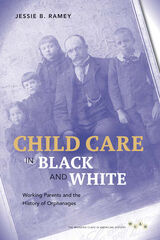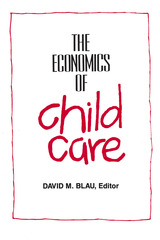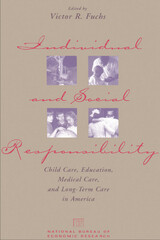
Child Care and Training was first published in 1928. Minnesota Archive Editions uses digital technology to make long-unavailable books once again accessible, and are published unaltered from the original University of Minnesota Press editions.
In this completely revised edition, a book with a long and successful history is brought up to date in keeping with current concepts of child development and growth. This basic handbook has been used and enthusiastically endorsed by thousands of teachers, students, doctors, parents, and nurses.
The present volume retains the time-tested plan of previous editions, but much of the material has been revised and new information, including a whole chapter on Personality, Adjustment, and Mental Health, has been added. All of the illustrations are new also.
The authors of the original volume, Marion L. Faegre and John E. Anderson, were joined in the preparation of this revision by Dale B. Harris, Dr. Anderson's successor as director of the Institute of Child Welfare at the University of Minnesota. In his long and distinguished career Dr. Anderson has served as president of the American Psychological Association and of the Society for Research in Child Development, as editor of the Psychological Bulletin and as advisory editor of Parents' Magazine and Childhood Education. Mrs. Faegre, author of numerous other works on child development, served for many years as consultant in parent education in the U. S. Children's Bureau, Washington, D. C.
Whether this book is used as a text for teaching or as a reference or guidebook for the individual, it admirably fills the need for a practical, authoritative source of instruction and advice.



Four in-depth studies of human-service sectors—child care, education, medical care, and long-term care for the elderly—are followed by six cross-sector studies that stimulate new ways of thinking about human services through the application of economic theory, institutional analysis, and the history of social policy.
The contributors include Kenneth J. Arrow, Martin Feldstein, Victor Fuchs, Alan M. Garber, Eric A. Hanushek, Christopher Jencks, Seymour Martin Lipset, Glenn Loury, Roger G. Noll, Paul M. Romer, Amartya Sen, and Theda Skocpol.
This timely study sheds important light on the tension between individual and social responsibility, and will appeal to economists and other social scientists and policymakers concerned with social policy issues.
READERS
Browse our collection.
PUBLISHERS
See BiblioVault's publisher services.
STUDENT SERVICES
Files for college accessibility offices.
UChicago Accessibility Resources
home | accessibility | search | about | contact us
BiblioVault ® 2001 - 2024
The University of Chicago Press









